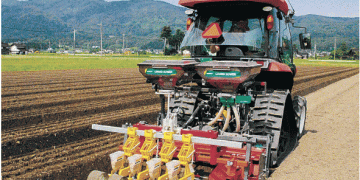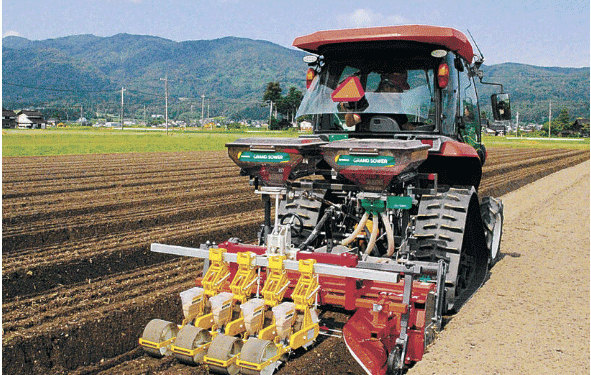In the Fukumi region of Nanto City, traditionally known for rice farming, a significant transformation is taking place. The JA Fukumi Agricultural Cooperative is leading an initiative to reduce rice farming areas and transition to growing carrots, a crop expected to yield higher profits. This change is not just about crops, but about adapting to the modern challenges facing Japanese agriculture, including labor shortages and the declining profitability of rice farming.
For decades, rice farming has been the backbone of Japanese agriculture, but the profitability has diminished, leading many farmers to question its long-term sustainability. JA Fukumi’s move to carrots represents a calculated shift, with farmers using former rice paddies to cultivate carrots on a large scale. In 2024, the carrot production area has increased to 10 hectares, with an estimated sales target of 20 million yen. This significant increase in both area and revenue underscores the potential carrots have as a more lucrative alternative to rice.
One key factor in this shift is the adoption of modern farming technologies. The farmers have embraced GPS-guided seeding and harvesting machines, which reduce labor intensity and improve efficiency. The GPS-enabled machinery allows precise planting and harvesting, significantly reducing the need for manual labor, which is critical as the agricultural workforce ages. In the past, planting required both an operator and an assistant to ensure accurate seeding, but now, with GPS technology, only one operator is needed. This level of automation helps to counter the labor shortages in rural areas and make large-scale carrot farming feasible.
JA Fukumi began promoting carrot production in 2019, establishing the Fukumi Carrot Producers’ Association to organize and scale production. Supported by local government funding, the cooperative purchased advanced planting and harvesting equipment, which allowed farmers to ramp up production without the usual labor constraints. Additionally, carrots have the advantage of not overlapping with the busy periods of rice cultivation, allowing farmers to diversify their workload and income.
Carrots have quickly become the region’s top vegetable crop, surpassing turnips, which were traditionally the dominant crop. In 2023, carrot sales reached 14 million yen, overtaking turnips for the first time. Looking forward, JA Fukumi is not just focusing on raw carrot sales but also exploring processed carrot products to increase brand recognition and profitability further.
The transition from rice to carrot production in Fukumi illustrates a broader trend in Japanese agriculture toward diversification and modernization. By adopting advanced technology and shifting to more profitable crops, JA Fukumi is helping local farmers adapt to the realities of modern agriculture. This shift is expected to provide a sustainable future for farmers while securing higher profits and increasing the economic stability of the region.































